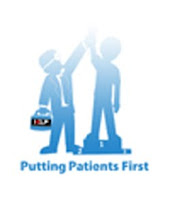Are you forgetful?
Are you confused?
Are you confused?
Senescence, old age, is as much a part of life as birth and adolescence. It should be a time of joy and relaxation, a period when the experience of the years gone by, should be harnessed in the development of the young, old and the nation.
Where are my keys? Why did I open the cupboard? But we immediately remember where the keys were and what I wanted from the cupboard. We all forget as we get older, but personality and behavioral changes do not occur, these memory lapses are due Age Association Memory Impairment (AAMI).
Where are my keys? Why did I open the cupboard? But we immediately remember where the keys were and what I wanted from the cupboard. We all forget as we get older, but personality and behavioral changes do not occur, these memory lapses are due Age Association Memory Impairment (AAMI).
What is DEMENTIA?
It is a disease process involving brain in which person shows clear sign and symptoms of progressive impaired memory, thinking process and behavioral changes, usually after the age of 65 years.
What is Alzheimer’s disease (AD)?
It is the commonest type of Dementia. The following are the ten warning signs of Alzheimer’s disease. Recent memory loss that affects job skills, difficulty in performing familiar tasks, problems with language, disorientation of time and place, problem with abstract thinking, poor or decreased judgment, misplacing things, change in mood or behavior, changes in personality and loss of initiative. Those affected by the disease, eventually loose their ability to perform activities necessary for day to day living such as eating, toilet and bathing. In the later stage, basic biological functions are disturbed, all language abilities are lost and the patients die profoundly demented.
Dementia can also be caused by brain hemorrhages due to thickening of the blood vessel or part of the brain dying due to a block in the arteries (cerebrovascular accidents), Parkinson’s disease, vitamin B12 deficiency, syphilis, tumor, infections and hydrocephalus, which have signs and symptoms similar to Alzheimer’s disease. These can be cured by the specific treatment; hence it is very important that the correct diagnosis of type of dementia is made in the early stages of the disease. AIDS associated dementia occurs in young adults.
Is Alzheimer’s disease (AD) a genetic disease?
Most of the cases of AD are sporadic, anybody can be affected, and however persons having Apoe4 allele on chromosome 19 are more prone for getting the disease. Familial type of AD is rare, it runs in the family, have mutations of chromosomes 1 21, or 14, the latter has stronger association. The family members of the patients are only slightly at higher risk, if one twin has the other have 60% chances of getting the disease.
Who is more likely to get Alzheimer’s disease?
Minimal Cognitive impairment (MCI) is progressive memory loss without dementia. It is observed that 12 to 15% of these develop AD. At present exact etiology of AD is not known; however the risk of developing AD increases with advancing age. It is more common in women and in patients having brain vascular diseases. Boxers with head injuries sufficient to cause unconsciousness for more than 24 hours, carry increased risk. Moderate intakes of alcohol, coffee, medications are not risk factors. Over or under use of the brain do not cause AD. Low protein, low fat diet, and intake of fruit and vegetable juices atleast three times a week, and the warm extended care to their elderly, may be important environmental factors protecting against the development of AD.
See your DOCTOR
If one forgets more than his age, like misplacing car keys in the fridge, forgets to put off the gas stove, he must see the Doctor, who by carrying out certain verbal tests, investigations and brain scan, will be able to say if it is AAMI, MCI or dementia and what type. An elderly intervention will help better management.
Care giving to dementia patients.
It is a challenging task and at times can be very difficult. It is necessary to understand that the patient is not doing anything deliberately; his disturbed behavior is because of the changes in the brain.
Source: Spectrum Healthcare’s – ARDSI.



No comments:
Post a Comment